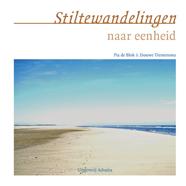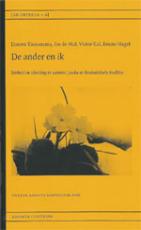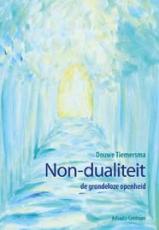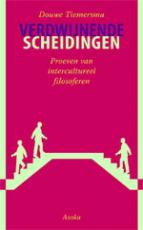Sri Aurobindo, The complete works of Sri Aurobindo
Sri Aurobindo Ashram Publication Dept., Pondicherry 1997
A pioneer of India's freedom movement, poet, seer and the exponent of Integral Yoga, Sri Aurobindo (1872-1950) visualized the possibility of humanity fulfilling its evolutionary destiny through a process of transformation. Imbued in peaceful meditation, like an ancient rishi, he saw divinity in the universe at large and spoke of Man's merger with the Cosmic Spirit. He declared that the Supreme became a supermind which, in turn, descended to become mind and matter; and that now a process of ascent was underway by which matter has become mind, only to evolve again into a supermind before being transformed into the Supreme once again. The supermind state, Sri Aurobindo contended, would be reached by the practice of Integral Yoga (purna yoga).
Sri Aurobindo's spiritual experiences find ample expression in his lofty poetry and sublime philosophy. His remarkable works, like the Life Divine, the Synthesis of Yoga, the Human Cycle, and the Ideal of Human Unity present an analysis of history: both spiritual and chronological, and trace the process of unfoldment of this gnostic mystery; while his epic, Savitri discovers to us the manifold occult realities beneath and above life as we know it.
Complete Works of Sri Aurobindo, in 35 volumes, is a fresh, uniform library edition, occasioned by Sri Aurobindo's 125 birth anniversary in 1997. Essentially an enlarged version of the earlier "Sri Aurobindo Birth Centenary Library" (30 volumes, 1972), it embodies about 2,500 additional pages of his hitherto-unpublished writings that, notably, include his Vedic and linguistic studies; commentaries on Isha, Kena and other major Upanishads; writings on philosophy and yoga; and autobiographical writings --besides his letters, diary, and spiritual journal.
Titles of the Individual Volumes:
1.Early Writings (formerly The Harmony of Virtue)
2.Collected Poems
3.Collected Plays and Stories -I
4.Collected Plays and Stories -II
5.Translations
6.Bande Mataram -I
Political Writings and Speeches 1890-1908
7.Bande Mataram -II
8.Karmayogin
Political Writings and Speeches 1909-1910
9.Writings in Bengali and Sanskrit
10.Record of Yoga -I
11.Record of Yoga -II
12.Essays Divine and Human
Writings from Manuscripts 1910-1950 (formerly The Hour of God and Other Writings)
13.Essays in Philosophy and Yoga
Shorter Works 1910-1950 (formerly The Supramental Manifestation)
14.Vedic Studies with Writings of Philology
15.The Secret of the Veda, with Selected Hymns
16.Hymns to the Mystic Fire
17.Isha Upanishad
18.Kena and Other Upanishads
19.Essays on the Gita
20.The Renaissance in India, with A Defence of Indian Culture
(formerly The Foundations of Indian Culture)
21.The Life Divine -I
22.The Life Divine -II
23.The Synthesis of Yoga -l
24.The Synthesis of Yoga -II
25.The Human Cycle,
The Ideal of Human Unity,
War and Self-Determination
26.The Future Poetry with On Quantitative Metre
27.Letters on Poetry and Art
28.Letters on Yoga -1
29.Letters on Yoga -1l
30.Letters on Yoga -1l1
31.The Mother with Letters on the Mother
32.On Himself
33.Savitri -l
34.Savitri -l1
35.Reference Volume
Number of pages: 500 per volume on the average
Size: 9.5"x6.5" (24x16 cm)
Typeface: Sabon, 11 point
Paper: special acid-free (for longevity)
Cover: cloth-bound in hard cover
ISBN 8170584965
$416.70 per set
It is an invaluable reference for scholars/discerning readers interested in traditional Indian philosophy (Vedic/Upanishadic), yoga/integral yoga, Indian literary writings in English language, modern Indian history and, above all, the genius himself, called Sri Aurobindo.
[Publisher]
Er is geen tweeheid
als je ontspannen bent
in zelf-bewustzijn
is dat duidelijk.
Boeken
Douwe schreef en redigeerde gedurende zijn leven boeken. Via onze uitgeverij zijn deze nog verkrijgbaar.



